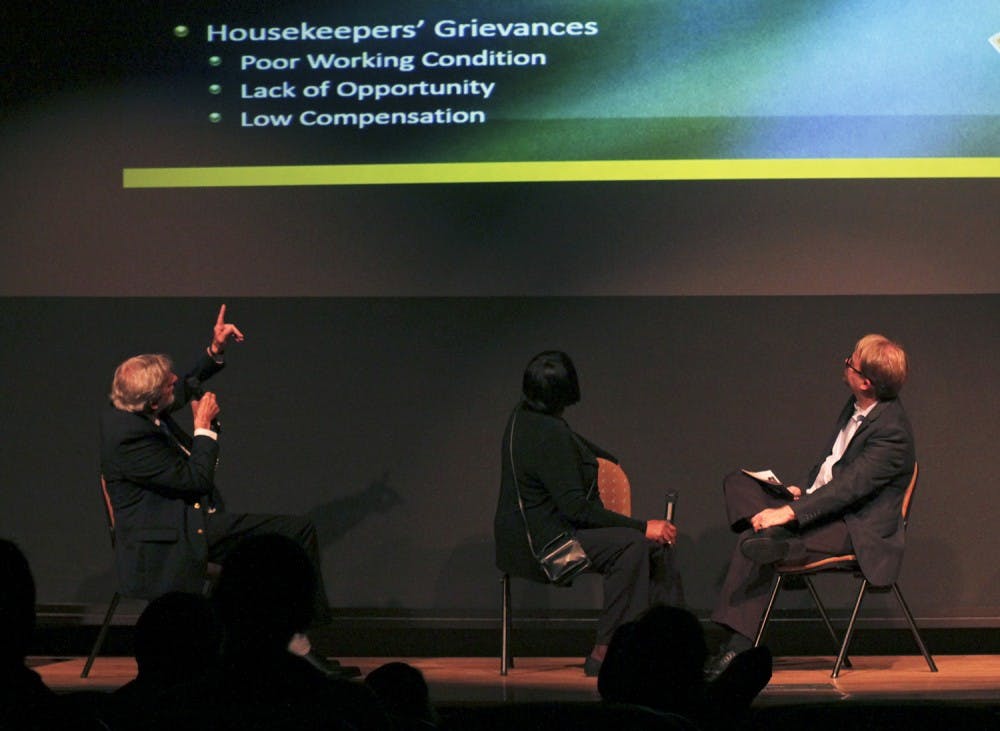The agreement was signed on November 26, 1996 and won UNC housekeepers increased wages, better training and educational opportunities among other things. The settlement also laid the foundations for the creation of a black cultural center on campus, the Sonja Haynes Stone Center for Black Culture and History, where the celebration of the anniversary was held on Tuesday.
Al McSurely, one of the lawyers who represented the housekeepers in 1996, said he knew the only way anything could change was if the housekeepers organized.
“That first meeting we had it was 35 housekeepers meeting together,” he said. “That in itself was revolutionary. It was a direct affront to the University. And I kept saying to them we need to file a grievance so if they fire you or come after you we can say it’s because you filed a grievance.”
McSurely said the main reason for filing the grievance was to give the housekeepers a better legal case against the University.
“These black jobs had about 10 to 20 percent lower starting pay than white jobs,” McSurely said. “And that was a very key part of our lawsuit — that the University had basically developed a whole analysis that black people didn’t need as much money to live on as white people and certainly didn’t need any promotions or training or any way to move up.”
Marcia Tinnen, one of the housekeepers who worked with McSurely to get the settlement, said she and other housekeepers were victims of sexist and racist treatment.
“We at that time were going through a lot,” she said. “We were being harassed on the job. It was a lot of work for the pay that we were getting. And, a couple of us got together and said, ‘Let’s do something about this,” Tinnen said. “And a lot of people were afraid, but we still went on to do what we had to do.”
Chris Baumann, who was involved in the process while he was a student at UNC as well as after, said the housekeepers’ struggle made him realize how important it is to get involved with things that affect the here and now.



